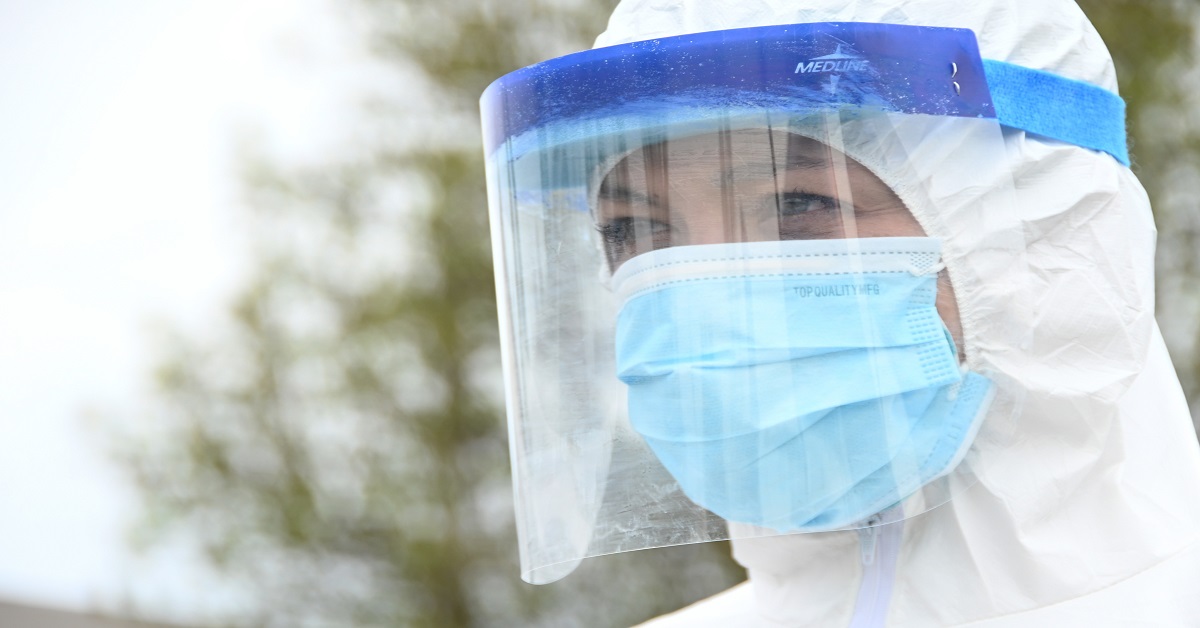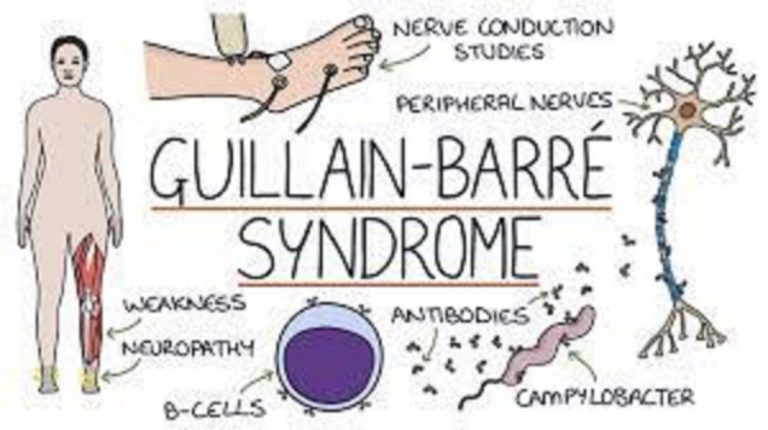
U.S. Air Force Tech. Sgt. Leigh Crane, an aerospace medical technician with the 118th Medical Group, Tennessee Air National Guard, waits for a patient to arrive at a drive-up COVID-19 testing site March 30, 2020 in Livingston, Tennessee. Troops from medical units across the Tennessee National Guard volunteered to run drive-up rural testing sites for the COVID-19 virus. (U.S. Air National Guard photo by Master Sgt. Jeremy Cornelius)
Loss of smell and taste has been anecdotally linked to COVID-19 infections. In a study published April 12, 2020 in the journal International Forum of Allergy & Rhinology, researchers at UC San Diego Health report the first empirical findings that strongly associate sensory loss with COVID-19, the respiratory disease caused by the novel coronavirus.
“Based on our study, if you have smell and taste loss, you are more than 10 times more likely to have COVID-19 infection than other causes of infection. The most common first sign of a COVID-19 infection remains fever, but fatigue and loss of smell and taste follow as other very common initial symptoms,” said Carol Yan, MD, an otolaryngologist and head and neck surgeon at UC San Diego Health. “We know COVID-19 is an extremely contagious virus. This study supports the need to be aware of smell and taste loss as early signs of COVID-19.”

Yan and colleagues surveyed 1,480 patients with flu-like symptoms and concerns regarding potential COVID-19 infection who underwent testing at UC San Diego Health from March 3 through March 29, 2020. Within that total, 102 patients tested positive for the virus and 1,378 tested negative. The study included responses from 59 COVID-19-positive patients and 203 COVID-19-negative patients.
Yan said the study demonstrated the high prevalence and unique presentation of certain sensory impairments in patients positive with COVID-19. Of those who reported loss of smell and taste, the loss was typically profound, not mild. But encouragingly, the rate of recovery of smell and taste was high and occurred usually within two to four weeks of infection.
“Our study not only showed that the high incidence of smell and taste is specific to COVID-19 infection, but we fortunately also found that for the majority of people sensory recovery was generally rapid,” said Yan. “Among the Covid-19 patients with smell loss, more than 70 percent had reported improvement of smell at the time of survey and of those who hadn’t reported improvement, many had only been diagnosed recently.”
Sensory return typically matched the timing of disease recovery. Interestingly, the researchers found that persons who reported experiencing a sore throat more often tested negative for COVID-19.
In an effort to decrease risk of virus transmission, UC San Diego Health now includes loss of smell and taste as a screening requirement for visitors and staff, as well as a marker for testing patients who may be positive for the virus.
Other known symptoms of COVID-19 include fever, fatigue, cough and difficulty breathing. Respondents in Yan’s study were most often persons with milder forms of COVID-19 infection who did not require hospitalization or intubation. The findings, she said, underline the importance of identifying early or subtle symptoms of COVID-19 infection in people who may be at risk of transmitting the disease as they recuperate within the community.
“It is our hope that with these findings other institutions will follow suit and not only list smell and taste loss as a symptom of COVID-19, but use it as a screening measure for the virus across the world,” Yan said.
Co-authors include: Farhoud Faraji, Divya P. Prajapti, Christine E. Boone and Adam S. DeConde, all at UC San Diego.
Funding for this research came, in part, from the National Institutes of Health (grant UL1TR001442).
Carol H. Yan, Farhoud Faraji, Divya P. Prajapati, Christine E. Boone, Adam S DeConde. Association of chemosensory dysfunction and Covid-19 in patients presenting with influenza-like symptoms. International Forum of Allergy & Rhinology, 2020; DOI: 10.1002/alr.22579






